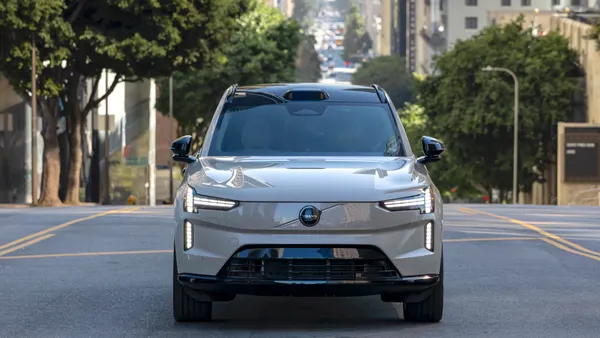Editor's note: This story is part of the WardsAuto digital archive, which may include content that was first published in print, or in different web layouts.
Major auto makers are continuing to monitor fallout along their supply chains this week resulting from a production disruption last month at German chemical maker Evonik Industries, girding their global operations for potential manufacturing shakeups.
General Motors tells WardsAuto it has implemented a global work team consisting of its purchasing and engineering teams, as well suppliers such as Evonick, “to allocate and prioritize existing inventories and also find alternative process materials solutions.”
Evonik makes resins used to coat components such as fuel and brake lines. Industry experts consider the material highly specialized and difficult to source elsewhere, much like Renesas Electronics’ semiconductor shortage last year resulting from Japan’s earthquake that jumbled production schedules at auto makers around the world.
GM says some of its Tier 1 suppliers use Evonik coatings sourced from the company’s Marl, Germany, facility, where a March 31 explosion and fire killed two people. Evonik reports “substantial constraints” in the availability of its key coatings products and hopes to rebuild the damaged plant by the end of the year.
GM would not name the Tier 1 suppliers affected by the shortage.
Ford says it cannot determine at this time if its production will be affected. “Our plants are running normally and we continue to monitor the situation,” the auto maker says in a statement to WardsAuto.
Toyota says it continues to monitor the situation and reports no impact presently to its manufacturing operations.
The situation at Evonik illustrates again the potential frailty of the supply chain and interconnectedness among global auto makers, where a single hiccup in the pipeline can affect supplies of multiple parts and manufacturers relying on a single sourcing point.
Last year, the disaster in Japan led to a worldwide shortage of semiconductor chips from Renesas that are used in vehicle powertrains. Auto makers scrambled with varying success at finding a sourcing replacement.
At GM, the chip shortage led to layoffs at a primary U.S. powertrain plant and limited supplies of diesel engines to Chevrolet cars as the auto maker was trying to build the brand in Europe, where the engines make up a majority of the mix.
“We were out of the diesel-engine business in Europe,” Tim Lee, head of GM’s International Operations, revealed at this year’s Detroit auto show.
The crisis in Japan also led to a worldwide shortage of Xirallic, an additive giving paint its metallic appearance and made only by Merck, another German chemical maker. The Xirallic shortage limited the colors Ford could offer on some vehicles for a period. Merck established a second source for the product outside of Japan last year.









